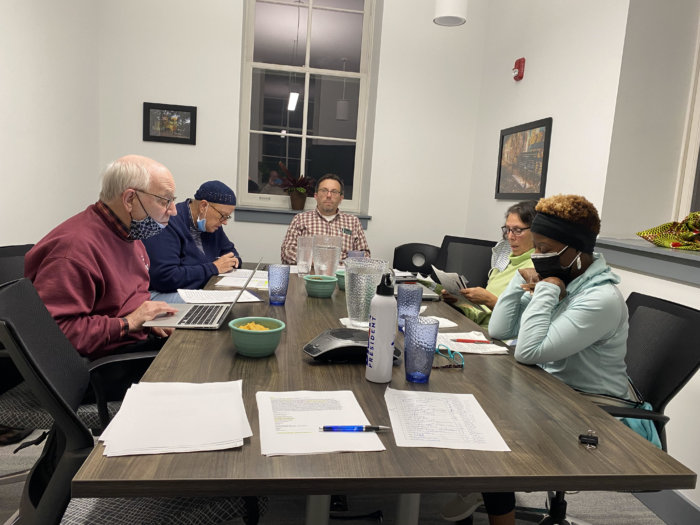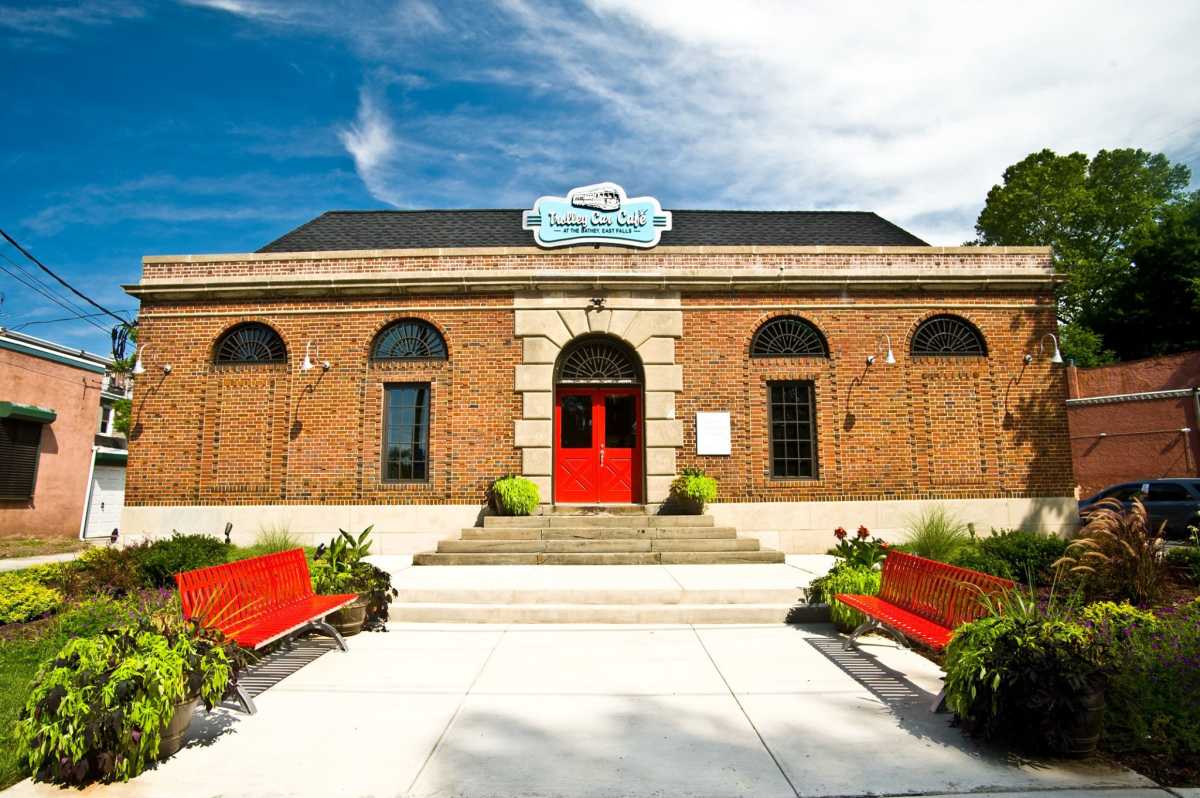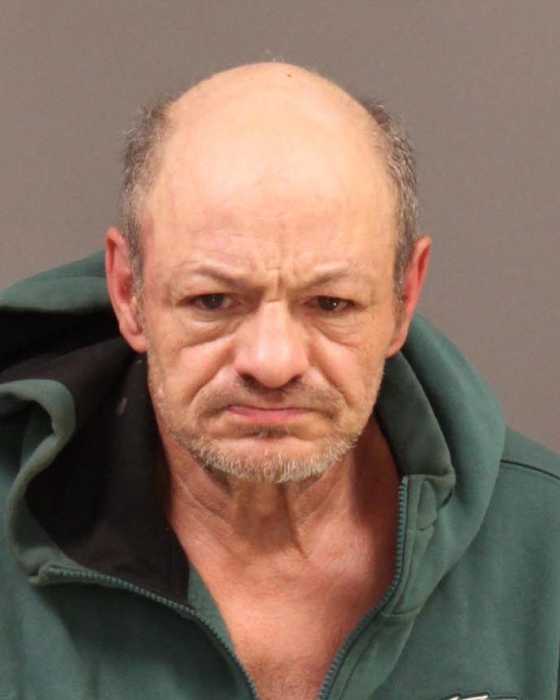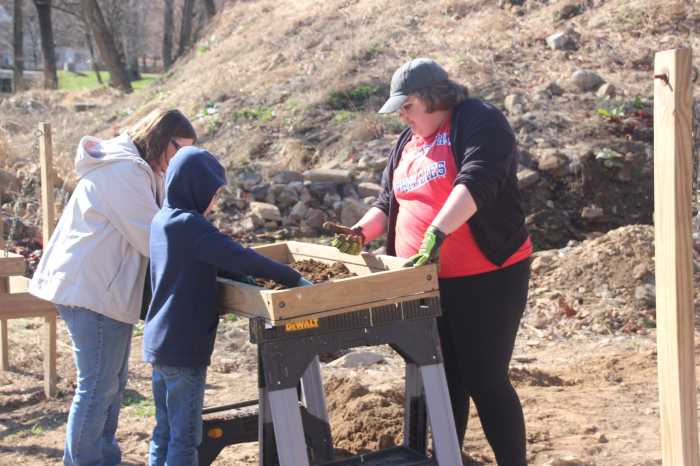Before the Trolley Car Diner closed in 2019, the Northwest Philadelphia institution, which stood on Germantown Avenue for almost 20 years, served up plates of corned beef hash to customers from all across the region. People lined up around the 1950s stainless steel diner, complete with an adorning streetcar, to order the famous chicken croquettes — a genuine delicacy by all accounts. And throughout the past decade, before increased competition shuttered the Trolley Car Diner for good, neighborhood teachers came looking for ways to enhance their student’s educational experiences.
While the hash is no longer slung on Germantown Avenue—and neighbors can only reminisce about the chicken croquettes—teachers and students continue to benefit from the once-beloved eatery. The Trolley Car Teachers’ Fund, a $50-to-$500 grant award, gives area public school teachers, many of whom use personal funds to purchase classroom supplies, an additional opportunity to enrich the educational experience for their students.
“It was never about opening a restaurant, it was more about creating a community platform for everything that we wanted to do,” said Ken Weinstein, a real estate developer who’s the President of Philly Office Retail. “Even without the diner and the [Trolley Car] cafe, to continue our programs for the community was really important to us.”
After a brief hiatus for the COVID-19 pandemic, the Trolley Car Teachers’ Fund came back in 2021 to award almost 40 public school educators from several sections of the city, including Chestnut Hill, East Falls, Germantown, and Mt. Airy, upwards of $15,000. The fund, which allows teachers to purchase everything, including basic supplies, library books, and social-emotional items for the classroom, returns at a critical time as students and educators attempt to navigate one of the more challenging and transformative school years amid an ongoing pandemic.
But in enriching academic opportunities for neighborhood public schools, the Trolley Car Teachers’ Fund also keeps alive the memory of its namesake diner.
According to Weinstein, he still runs into people who love to talk and reminisce about the diner — people who worked their first jobs there, people who met their spouse there, and people who miss the food. The Teachers’ Fund is more than a way to help students in need; it keeps the character of a neighborhood going.
Today, Philly Office Retail, which is also known for Jumpstart Germantown—a program that trains, mentors, networks with, and loans money to aspiring real estate developers—spearheads the Trolley Car Teachers’ Fund. Every fall, the group sends out applications to principals and teachers through email while also stuffing hardcopies in their mailboxes. The process itself, Weinstein said, should take no longer than 20 minutes.

“We do that on purpose because I don’t want to waste anyone’s time,” Weinstein said. “I want to make this as easy as possible so that they can focus on teaching, and we could focus on making grants.”
Unlike many grant programs, the Trolley Car Teachers’ Fund is designed to give away money for a variety of needs, and rarely is an application denied. Board members this year noted that while there were a lot of last-minute applications, most of them were of high quality, and very few were not funded. Everything from requests for shelving and storage bins to girls empowerment items received a grant from the Trolley Car Teachers’ Fund.
One thing the program didn’t see, which was in stark contrast to most other years, were requests to fund class trips. “We get, typically, 20-to-25% of our grant requests are for some sort of class trip,” Weinstein said. “It could be to the Franklin Institute. It could be to the Philadelphia Orchestra. It could be anywhere. And this year, we got one request out of 45 applications.”
Travel isn’t the only thing that changed with the pandemic. According to Weinstein, many Philadelphia public school teachers continue to be concerned with the lack of connection students experienced due to online learning. A significant portion of the grant requests for the 2021 school year revolved around ways to help students connect and catch up.
“In my mind, there’s no reason why students in Philadelphia public schools are funded at sometimes less than half the level of similar schools outside of Philadelphia,” Weinstein said.
Weinstein said that the absolute dream — outside of, perhaps, another plate of corned beef hash or some chicken croquettes — would be for Harrisburg to offer equitable funding to all school districts across the state. Until then, he’ll keep offering grants through the Trolley Car Teachers’ Fund and honor the memory of the 1950s stainless steel diner.





























